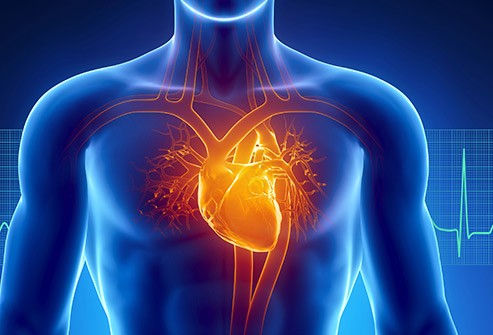
The current climate definitely has us feeling a little helpless — from balancing Work From Home schedules, homeschooling our children, to just simply navigating through this “new normal.” As the coronavirus (COVID-19) spreads, one thing has become clear: certain groups are at higher risk for severe complications including those with diabetes, high blood pressure, heart disease, and kidney disease. In fact, beyond these specific medical conditions, a compromised immune system puts you in a higher-risk category.
Although we don’t have a cure for COVID-19 (yet), we do know that a strong immune system helps us better combat and recover from viruses in general than a weak immune system does. In fact, recent studies have indicated that nutritional ketosis and the keto diet help to support the immune system.
Nutritional Ketosis & Overall Health
Nutritional ketosis works by conditioning your body to burn fat to use as energy, in place of carbohydrates. The ketogenic diet has become a prominent weight-loss tool; however, nutritional ketosis also has a number of additional benefits including low inflammation and sharper mental and physical health. But how does this relate to coronavirus?
While the ketogenic diet is technically not a coronavirus “cure,” a report released by the NIH found that the ketogenic diet can improve heart health and help control blood sugar for patients who have diabetes and pre-diabetes. As mentioned earlier, older patients with diabetes and heart disease do experience more adverse effects from COVID-19. It’s safe to assume that improving the degeneration of those diseases through diet can help the most at-risk patients mitigate their risk.
Nutritional Ketosis & Immunity
In addition to improving overall health, the ketogenic diet may also help your body defend itself from flu infections. In 2019, a study at Yale University found that “mice fed a ketogenic diet were better able to combat the flu” and “had a higher survival rate” compared to those fed a high-carbohydrate diet. The explanation was that the ketogenic diet triggered release of immune system cells (gamma delta T cells) that produce mucus in the lung cell linings, effectively trapping viruses. Although the bodies of mice differ from humans, scientists do have a starting point from which to boost immunity and help cure influenza and more.
How Can The Ketogenic Diet Boost Immunity?
At its core, the ketogenic diet includes foods that contain vitamins and minerals that can boost immunity like:
- Broccoli, brussels sprouts, cauliflower, tomatoes, & bell peppers (high in vitamin C)
- Salmon, beef, eggs, sardines & sugar free yogurt (high in vitamin D)
- Vegetable oils, almonds, seeds & spinach (vitamin E)
- Red meats, shellfish, & dairy (Zinc)
- Leafy green vegetables (Folate)
- Dark green leafy vegetables, broccoli & eggs (Vitamin A)
- Broccoli, chicken breast & tuna (Vitamin B6)
A ketogenic diet can also decrease obesity. Obesity causes the body to be more susceptible to diseases and infections.
Sleep Quality, Nutritional Ketosis, And You
Getting enough rest is one of the most important factors in maintaining a healthy immune system. Researchers at the Medical University of South Carolina conducted an experiment on six patients with obesity following the ketogenic diet and discovered that weight loss led to an increase in REM sleep and a decrease in slow-wave sleep to near normal levels. By helping the body cut down on excess weight, the ketogenic diet can help decrease daytime sleepiness and help individuals go into a deeper sleep at night.
Although more research is needed to see what nutritional ketosis and following the ketogenic diet can offer the immune system, initial studies show that there is reason for hope.
In Conclusion…
The keto diet may have been developed to help children with epilepsy control seizures, but its benefits are proving to reach far beyond that population. Its ability to reduce inflammation is just one of the many additional benefits adopters of the keto plan are seeing. By eliminating inflammatory foods, promoting healthy weight levels, and producing specialized ketones that inhibit the inflammatory response, the keto diet is a strong tool against dangerous inflammation. For those suffering from chronic inflammation, a recommendation to follow the keto diet may very well soon be standard practice amongst doctors.
As the keto diet continues to surge in popularity, one of the most common questions asked is “how exactly do I track my progress?” Since the ketogenic approach dips into your fat stores to help you quickly shave off the pounds, it’s crucial to continually keep track of just what progress you’ve made. If you’re new to the keto diet, this step is especially critical, as you want to be sure you’re following the approach properly. Just like you can track your steps on an Apple Watch, we developed the first clinically-backed ketone breath monitor – so you can see just how many ketones you’re producing, at any point throughout the day.
References:
Castro, A., Gomez-Arbelaez, D., Crujeiras, A., Granero, R., Aguera, Z., Jimenez-Murcia, S., Sajoux, I., Lopez-Jaramillo, P., Fernandez-Aranda, F. and Casanueva, F., 2018. Effect of A Very Low-Calorie Ketogenic Diet on Food and Alcohol Cravings, Physical and Sexual Activity, Sleep Disturbances, and Quality of Life in Obese Patients. Nutrients, 10(10), p.1348.
Goldberg, E., Molony, R., Kudo, E., Sidorov, S., Kong, Y., Dixit, V. and Iwasaki, A., 2019. Ketogenic diet activates protective γδ T cell responses against influenza virus infection. Science Immunology, 4(41), p.2026.



